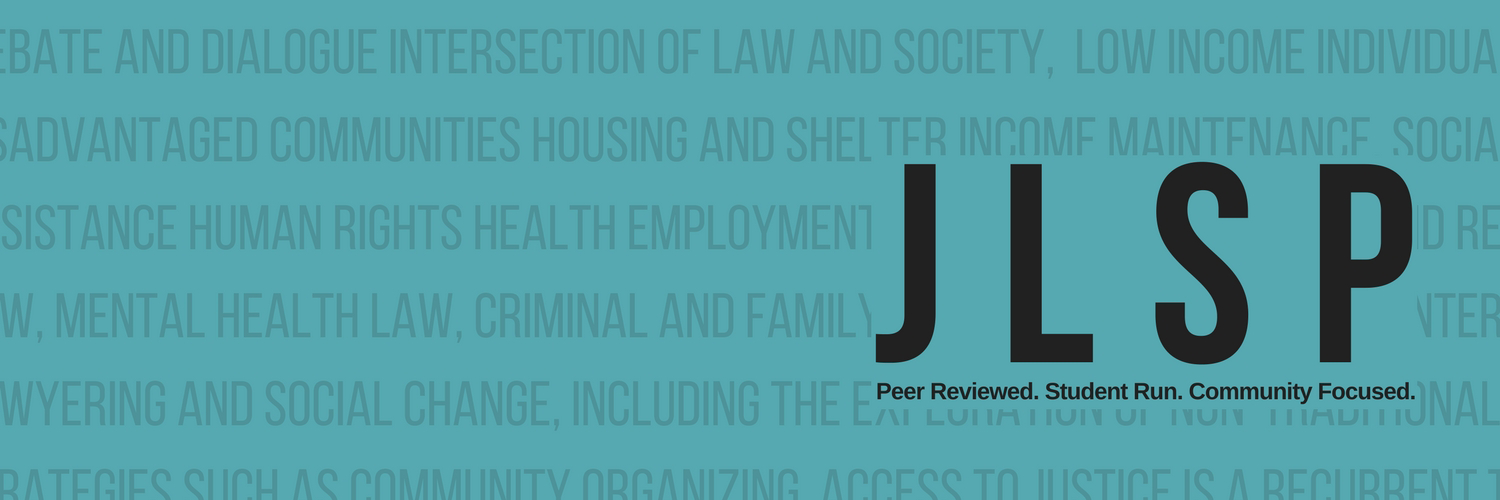
Publication Date
1-1-2014
Keywords
Law--Study and teaching (Clinical education); Deportation--Study and teaching (Higher)--Simulation methods; Ontario
Document Type
Article
English Abstract
In this article the author argues that the University of Toronto’s Emergency Team (E-Team)—a student pilot project created to assist people facing deportation on short notice—provided a critical service to its clients and gave its student members a unique opportunity to learn real-world legal skills. The first part of this article reviews the project’s outcomes and concludes that it was a success: the E-Team won nine of its ten cases, and its members credit the project both with teaching them crucial legal competencies that they did not encounter elsewhere and with fostering their passion for social justice law. The second and third parts analyze the E-Team’s structure, identifying the organizational principles that allowed the students to work well together and arguing that teamwork, in a context marked by urgency and high stakes, offers exceptional pedagogical opportunities. In the final section, the author suggests that while the refugee law context is unusual in many respects, the E-Team model could nonetheless be applied in other areas of law practiced in Ontario’s student legal clinics, and in particular, could be adapted to be useful in less urgent situations where the stakes are lower.
French Abstract
Dans cet article, l’auteur avance que l’ « Emergency Team » (« E-Team ») offrait un service crucial à ses clients et procurait aux étudiants membres une occasion unique d’acquérir des compétences juridiques pratiques. Le projet pilote étudiant a été créé pour assister les personnes qui font face à une décision de déportation à court terme. La première partie de cet article résume les objectifs initiaux du projet et conclut que ceux-ci sont atteints : la « E-Team » a gagné neuf de ses dix cas. De plus, ses membres ont reconnu l’efficacité du projet, notamment quant à l’enseignement de compétences légales décisives à leur carrière qu’ils n’auraient pas acquis autrement. Le projet a suscité et développé leur intérêt pour le droit social et l’accès à la justice. Les deuxième et troisième parties analysent la structure de la « E-Team » en identifiant les principes organisationnels qui permettaient aux étudiants de travailler ensemble. Dans ces parties, l’auteur avance aussi que le travail en équipe dans un contexte d’urgence offre des opportunités pédagogiques extraordinaires. Dans la dernière section, l’auteur suggère que, bien que le contexte du droit des réfugiés soit unique, le modèle de la « E-Team » pourrait néanmoins être utilisé par d’autres cliniques étudiantes ontariennes dans d’autres domaines du droit. Plus particulièrement, il pourrait être adapté et utilisé dans des contextes différents où les enjeux sont moins urgents.
Citation Information
Cameron, Hilary Evans.
"The E-Team Project: A Teamwork Approach to Clinical Legal Education."
Journal of Law and Social Policy
23.
(2014): 30-61.
DOI: https://doi.org/10.60082/0829-3929.1189
https://digitalcommons.osgoode.yorku.ca/jlsp/vol23/iss1/3
